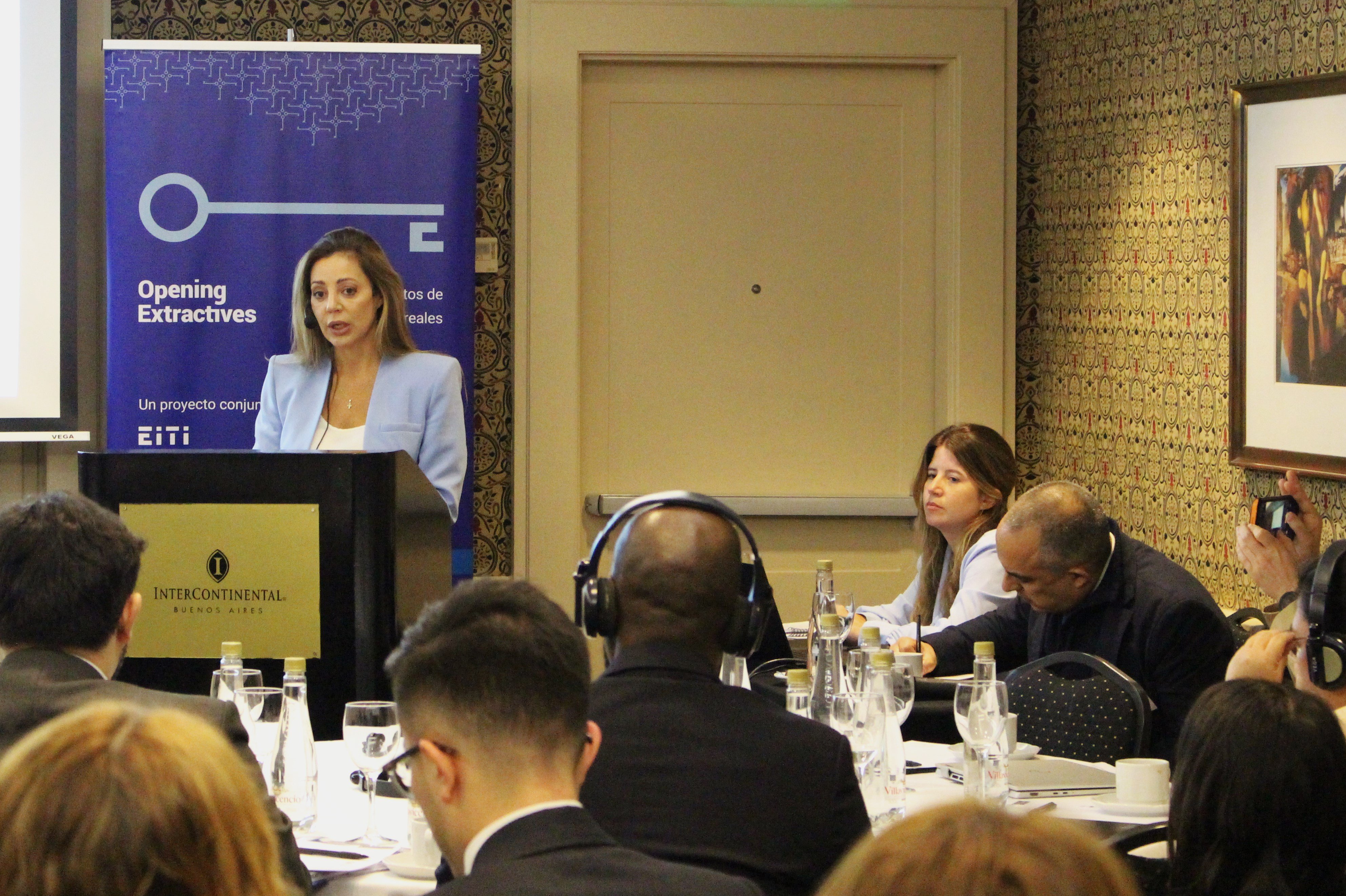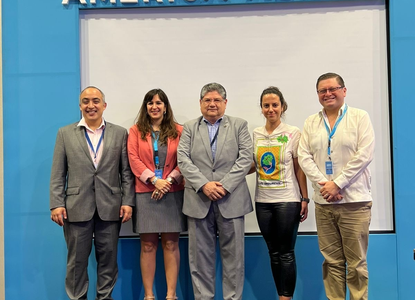Beneficial ownership transparency: An urgent agenda in Latin America and the Caribbean

Opening Extractives event demonstrates growing community of practice and momentum on beneficial ownership transparency in the region
More than 50 representatives from countries across Latin America and the Caribbean convened in Buenos Aires last month to take stock of reforms and progress in advancing beneficial ownership transparency. The event, hosted by the Opening Extractives programme delivered by Open Ownership and the the EITI, and held in partnership with the Inter-American Development Bank (IDB) and the Latin American Financial Action Task Force (GAFILAT), presented an opportunity for stakeholders to share best practice and build momentum on combatting anonymous company ownership in the extractive sector and beyond.
Growing interest in stronger governance
Beneficial ownership transparency has been gaining momentum in Latin America in the Caribbean. A recent publication by the Tax Justice Network notes that 10 countries in the region now have a legal obligation for a beneficial ownership registry, in contrast to only four who had such regulations five years ago. EITI implementing countries such as Argentina and Ecuador are now joining this movement with innovative approaches to beneficial ownership disclosure.
Strong legal and institutional frameworks sit at the heart of robust and transparent beneficial ownership practices, which must underpin governments’ anti-corruption agendas. Yet, to tackle corrupt behaviour such as money laundering and terrorism-financing activities, public oversight and use of beneficial ownership information is key. The event brought to light how beneficial ownership data can be used to improve governance of the extractive industries, for example by identifying irregularities in public contracting and licenses awards.
The forum reiterated the important role that multi-stakeholder dialogue has to play in combatting anonymous company ownership. Strengthening collaboration across government agencies and international organisations can further help make the process of identifying corruption risks more efficient and effective, especially in an era where multinational crime remains a threat to economic stability.
Many tools, one common goal
The event demonstrated that there is broad agreement on the importance of having open beneficial ownership registries to strengthen anti-corruption and anti-money laundering activities. Yet participants highlighted barriers in making public registries a reality, such as narrow objectives in legislation, data privacy laws, and unclear regulatory frameworks for information sharing across agencies, which hinder the use of beneficial ownership information.
Nonetheless, some countries have found ways to overcome such barriers to disclosure. Participants shared best practices in implementing the EITI and other standards to advance beneficial ownership transparency. Trinidad and Tobago, for example, has established a voluntary beneficial ownership register, while Ecuador’s Superintendencia de Compañías has taken an innovative approach, by making several data points on beneficial ownership information already publicly available, despite not having a public beneficial ownership registry as such. Furthermore, the recent modifications to FATF’s recommendation 24 on beneficial ownership open up the possibility for making data available to the broader public in order to strengthen anti-corruption measures.
Opening Extractives in Latin America and the Caribbean
Argentina is currently the only country in Latin America that implements the Opening Extractives programme. EITI Argentina has taken an important step by inviting the Anti-Corruption Office and the Fiscal Authority to participate in its multi-stakeholder group, which provides it with an opportunity to learn from the Integrity Registry of Companies (a voluntary platform led by the Anti-Corruption Office that hosts information on private sector compliance and anti-corruption policies – including beneficial ownership data – and shares this with government authorities). The Opening Extractives programme is building on this momentum by supporting reforms that would mandate beneficial ownership disclosure in the extractive sector.
The forum lay the foundations for a growing community of practice which can facilitate learning and innovation among government officials and practitioners across the region. It also provided strong evidence that interagency cooperation delivers positive results and increases learning opportunities that improve public policy. Most importantly, the event demonstrated the value of collaborating across borders and organisations – and that making beneficial ownership transparency a global norm rests on the power of partnership.
The event included participation from Argentina, Chile, Colombia, Dominican Republic, Ecuador, Guatemala, Guyana, Mexico, Peru and Trinidad and Tobago, as well as representatives from five international organisations (Open Government Partnership, UNODC, Open Contracting Partnership, Pan American Development Foundation, and the Global Forum) engaged in the agenda of beneficial ownership governance and transparency in Latin America and the Caribbean. The event also convened representatives from different government and law enforcement agencies in Argentina, as well as provincial government representatives.

